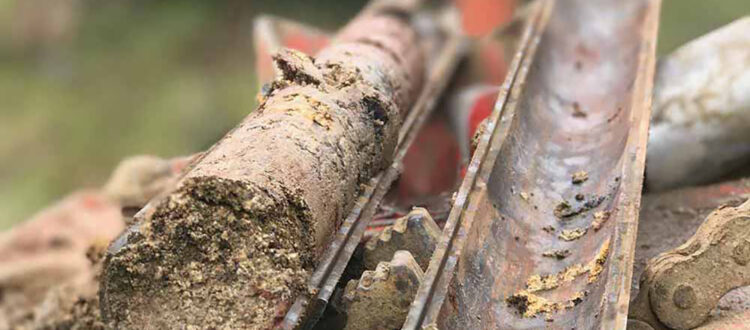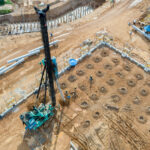The Crucial Role of Soil Testing in Building Foundation Design
In the world of construction, a solid foundation is the bedrock upon which every successful project stands. In the island of Phuket, known for its stunning beaches and burgeoning real estate market, construction companies are thriving. However, amidst the allure of pristine properties and lucrative opportunities, one fundamental aspect often gets overlooked – soil testing. In this blog post, we will delve into the significance of conducting soil tests before designing building foundations, especially for construction companies in Phuket. Understanding the local soil conditions can be the key to the success and longevity of any construction project.
Ensuring Structural Stability
The foundation of any building carries the immense responsibility of supporting the entire structure. In Phuket, where tropical storms and uneven terrains are not uncommon, the stability of a building is of paramount importance. Soil testing provides vital information about the soil’s load-bearing capacity and its ability to support the weight of the proposed structure. Without this knowledge, construction companies may inadvertently build on unstable ground, leading to structural failures, costly repairs, and potential safety hazards.
Adapting to Local Soil Variations
Phuket, like many other regions, has diverse soil compositions due to variations in its geological history and topography. Different types of soil, such as clay, sand, silt, and loam, have varying properties that affect how they interact with structures. For instance, clayey soils can expand and contract significantly with changes in moisture, potentially causing foundation movement. In contrast, sandy soils might lack the necessary stability for larger structures. Soil testing helps construction companies adapt their foundation designs to suit the specific soil conditions in Phuket, ensuring the longevity of their buildings.
Preventing Differential Settlement
Differential settlement occurs when different parts of a building’s foundation settle at varying rates. This can lead to structural damage, cracks in walls, and uneven floors, which can be costly to repair. In Phuket, where soil conditions can change dramatically from one area to another, failing to conduct soil tests can result in differential settlement issues. By understanding the soil’s compressibility and bearing capacity, construction companies can design foundations that distribute loads evenly, reducing the risk of differential settlement.
Complying with Local Regulations
Phuket, like many other regions, has building codes and regulations in place to ensure the safety and quality of construction projects. Soil testing is often a mandatory step in the permitting process. Construction companies that neglect to conduct soil tests may find themselves facing legal issues, delays, or even having to demolish and rebuild structures that do not meet regulatory standards. By adhering to local regulations and conducting proper soil testing, construction companies can save time and money in the long run.
Cost Savings
Some might view soil testing as an unnecessary expense, but in reality, it can lead to significant cost savings. Knowing the soil conditions allows construction companies to optimize their foundation designs, avoiding over-engineering or costly remediation efforts later in the project. It also reduces the risk of unexpected issues arising during construction, which can result in delays and additional expenses. In the competitive construction industry of Phuket, cost-effective practices can make all the difference.
Enhancing Project Efficiency
Efficiency is a key factor in the success of any construction project. Soil testing provides critical data that allows construction companies to plan and execute their projects more efficiently. It helps in determining the appropriate foundation type, depth, and reinforcement needed. Additionally, it aids in the selection of construction methods that are best suited to the soil conditions, reducing construction time and improving project timelines.
Conclusion
In the thriving construction industry of Phuket, where the demand for high-quality properties continues to rise, construction companies must prioritize soil testing as an integral part of their foundation design process. The importance of understanding local soil conditions cannot be overstated. It ensures structural stability, prevents costly issues, promotes environmental responsibility, and helps companies comply with regulations.
Construction companies that embrace soil testing as a standard practice will not only enhance the quality and safety of their projects but also establish themselves as responsible and reputable players in Phuket’s competitive real estate market. Investing in soil testing is an investment in the long-term success and sustainability of the construction industry in this beautiful island paradise.











